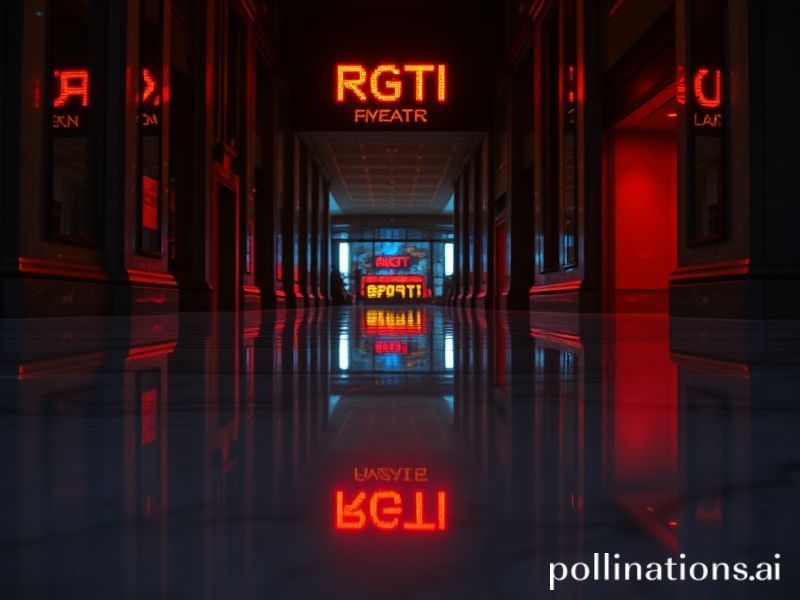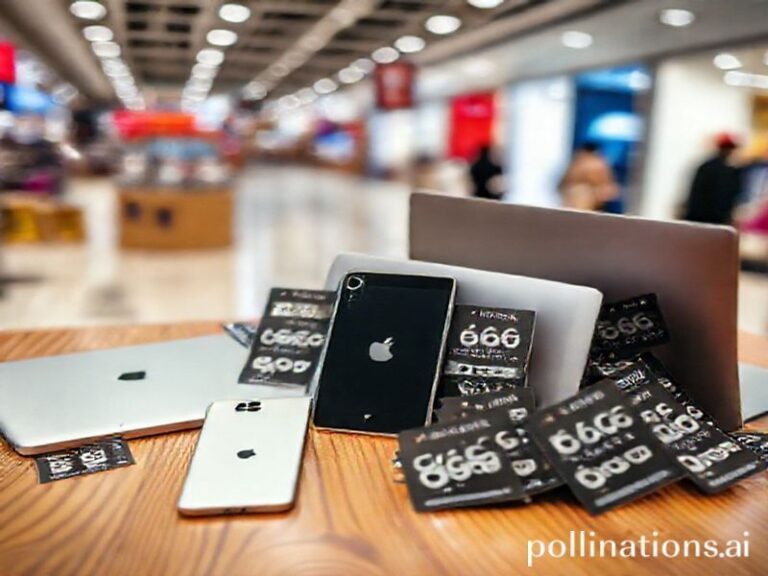RGTI Stock: How a Texas AI Startup Became the World’s Favorite Lottery Ticket
A micro-cap company from Plano, Texas, just reminded the planet that the twenty-first-century gold rush isn’t in the Yukon—it’s in whatever widget happens to rhyme with “artificial intelligence” this week. Rezolve AI (ticker: RGTI, formerly the less glamorous “Armada Acquisition Corp.”) has become the latest contestant in the global sweepstakes where venture capitalists, pension funds, and bored dentists from Düsseldorf all pile into a stock whose market cap can swing by a mid-sized European GDP in an afternoon.
The company’s pitch is almost insultingly simple: an AI-powered “digital brain” that turns any mobile phone into a hyper-personalized shopping concierge. Imagine Siri, but trained exclusively by Amazon Prime, and you’re there. What makes traders from Singapore to São Paulo salivate is less the product than the magic word “AI,” which—much like “blockchain” in 2017 or “dot-com” in 1999—functions as a universal translator for turning skepticism into FOMO.
Last Tuesday, RGTI closed at $3.12. By Friday it kissed $8.40 on volume heavier than a Russian dash-cam compilation, before politely collapsing back to $5.80 after someone remembered the firm still has a cumulative loss equal to the GDP of Belize. The move was abetted by a 4 a.m. press release announcing a “strategic partnership” with an unnamed Southeast Asian telecom—translation: two interns shared a Zoom with a guy who knows a guy who once toured Singtel’s cafeteria. Still, the algos don’t parse nuance; they parse keywords, and “AI partnership” is basically a buy order in machine language.
From a geopolitical angle, the spectacle is delicious. The United States may fret about decoupling from China, but capital markets remain happily coupled to anything that promises exponential returns. Korean day-traders pile in during Seoul’s lunch break, German savings banks queue their orders overnight, and even the Swiss—those stoic guardians of fiduciary sobriety—are apparently willing to risk it all for a piece of a company whose balance sheet looks like a teenager’s first checking account.
Meanwhile, regulators in Brussels, who just finished drafting a 400-page AI Act designed to prevent exactly this sort of exuberant nonsense, can only watch the tape and mutter into their espresso. The Act, incidentally, defines “high-risk AI systems” as those that might cause harm to EU citizens. By that metric, RGTI’s chart should qualify: the whiplash alone has probably sent a handful of cardiologists’ kids to private school.
What does it all mean for the average Earthling who still thinks a GPU is something you mine crypto with? Nothing, and everything. On the micro level, RGTI is a reminder that markets are no longer venues for price discovery so much as global mood rings. On the macro level, it’s a symptom of capital desperately seeking yield in a world where real interest rates are negative and bonds yield less than a parking meter in Zurich. If you can’t get paid for lending to governments, why not gamble on a Texas startup promising to turn your phone into the digital equivalent of an over-eager perfume salesperson?
History, of course, is littered with tickers that once mooned on jargon and a prayer. Some—Google, Amazon—actually grew into their hype; others—pets.com, Long Island Iced Tea turned blockchain—now exist primarily as punchlines in MBA seminars. RGTI’s fate will depend on whether its AI can sell more than just its own stock. Until then, the rest of us can sit back with popcorn and watch humanity’s collective id attempt to price the unknowable. It’s the oldest story in finance, updated for the age of ChatGPT: we know the ending, but the special effects are new.







